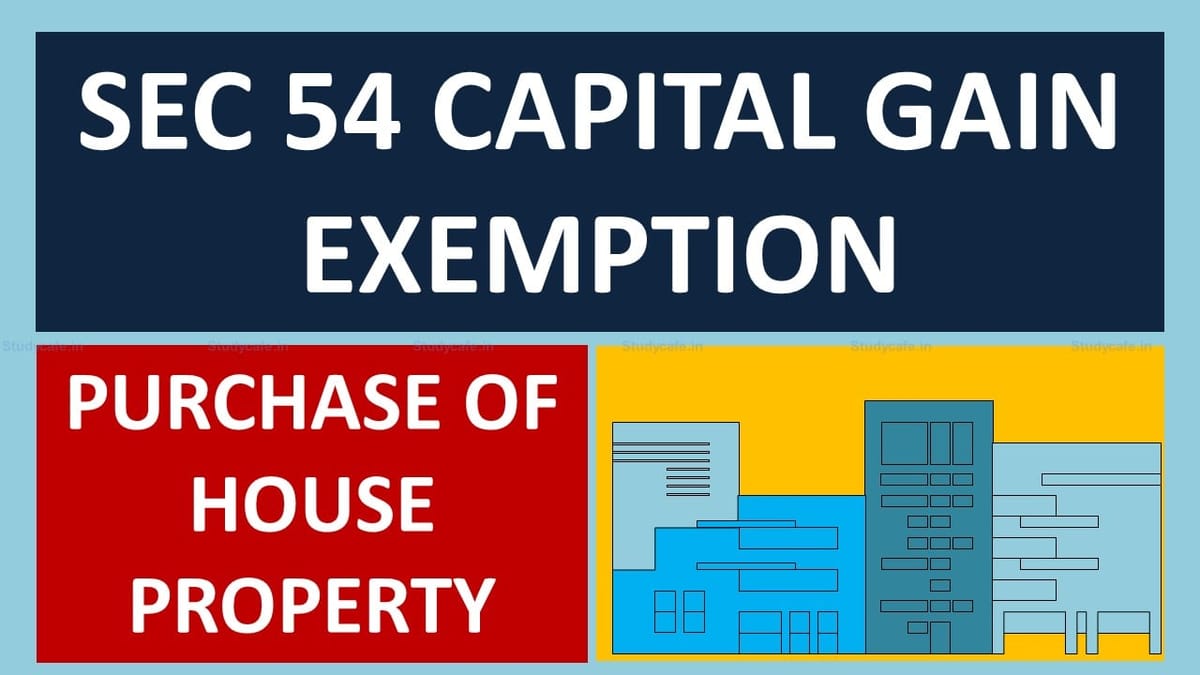Denial of deduction under Sec 54F would not lead to imposition of penalty u/s Sec 271(1)(c): ITAT
Deepak Gupta | May 11, 2022 |

Denial of deduction under Sec 54F would not lead to imposition of penalty u/s Sec 271(1)(c): ITAT
The assessee has challenged the imposition of the penalty of Rs. 13,75,050/- on account of disallowance of deduction under Section 54F of the Income Tax Act.
It is seen that the basis for denial of deduction under Section 54F is that the purchase of the property i.e. new asset was beyond the period of one year vis-à-vis sale of the old asset in this regard. It is the case of the assessee that although the purchase of new asset is beyond one year vis-à-vis sale of the old asset, the security deposit for sale of old asset was taken within a period of one year, and therefore, the action for sale of old asset started rolling within the stipulated period. It is the case of the assessee that the provisions of Section 54F are beneficial in nature and the Courts have always accorded liberal interpretation and a small delay of few days have been condoned for the eligibility purposes. Even otherwise, in these circumstances, the imposition of penalty on account of denial of deduction on such technical breach is not justified on the contours of Section 271(1)(c) of the Act.
As per Income Tax Appellant Tribunal (ITAT), “While the admissibility of deduction under Section 54F in the circumstances may be somewhat debatable due to non-compliance of strict letter of law. However, this by itself, would not result in the imposition of penalty as a consequential measure.”
Admittedly, no inaccuracy was found in the particulars of deduction claimed as such. The assessee also has a basis for claim of deduction in the light of the fact that security deposit was accepted from the brokers against the sale of property which ultimately materialized 20-25 days later resulting in slight delay in actual execution of sale agreement of old asset. In such circumstances, small breach in the stipulated period of one year between purchase and sale of assets would not justify imposition of onerous penalty.
In case of any Doubt regarding Membership you can mail us at contact@studycafe.in
Join Studycafe's WhatsApp Group or Telegram Channel for Latest Updates on Government Job, Sarkari Naukri, Private Jobs, Income Tax, GST, Companies Act, Judgements and CA, CS, ICWA, and MUCH MORE!"